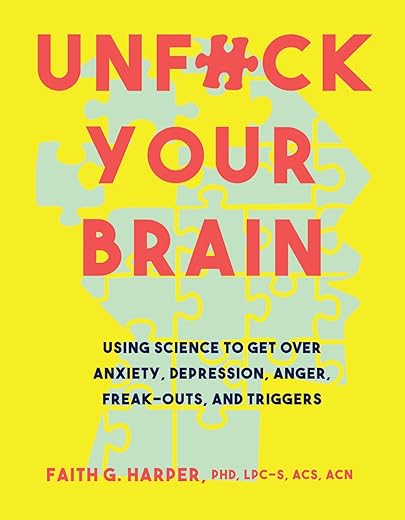In a world filled with ever-increasing pressures and challenges, nurturing children’s mental health has never been more crucial. Imagine a tool that not only offers comfort and guidance but also empowers children to navigate their emotions and mental well-being with confidence. In this blog post, delve into the transformative power of age-appropriate mental health books for children. Discover the untapped potential these books hold in shaping young minds, fostering resilience, and instilling valuable life skills. Let’s embark on a journey together as we explore the profound benefits that reading these books can bring to our dear little ones. Ready to unlock a world of growth and support for the children in your life? Join in, and let’s delve into the realm of emotional literacy and well-being together.
Enrich Your Mind and Find Solace with Top Mental Health Literature
Addressing Mental Health in Children: The Critical Role of Books
As society becomes increasingly aware of the importance of mental health, the conversation is expanding to include our youngest generation — children. Addressing mental health in children from an early age is crucial for their overall well-being, social success, and academic achievement. One powerful tool in fostering awareness and understanding of mental health in children is through the use of books.
Starting Early: Impact of Childhood Mental Health
- Long-Term Impacts:
- Addressing mental health issues early on in life can have long-term positive impacts on a child’s development.
- Untreated mental health problems in childhood can lead to more severe issues in adolescence and adulthood.
Importance of Communication through Books
Books play a vital role in helping children navigate complex emotions, understand mental health topics, and provide a safe space for open dialogue. They can serve as a bridge between children and understanding their feelings, fostering empathy and resilience.
- Narratives of Resilient Characters:
- Books like “Brave Belle: Pumpkin Park” by Erica Cacace and Allie Romo feature characters who overcome challenges and promote resilience.
Building Empathy and Awareness
- Portrayal of Mental Health:
- Books like “The Invisible String” by Patrice Karst introduce the concept of emotional connection and feelings in a tangible way.
- “Can I Catch it Like a Cold?” by Center for Addiction Studies offers explanations about mental health challenges in a language that young children can comprehend.
Encouraging Dialogues
Parents, caregivers, and educators can use books as tools to initiate conversations about mental health. Reading and discussing books with mental health themes can help break stigmas, normalize discussions, and encourage seeking help when needed.
- Resource for Adults and Kids:
- Organizations like The Child Mind Institute provide reading lists of age-appropriate books to assist adults in addressing mental health concerns with children.
Impact on Positive Mental Health Habits
By incorporating mental health topics into children’s literature, we pave the way for a future generation that is more empathetic, understanding, and open to discussing mental well-being.
In conclusion, books play a vital role in shaping young minds, fostering empathy, and increasing awareness of mental health in children. By nurturing these conversations early on, we can make a remarkable difference in the lives of our children.
Empowering Young Minds Through Reading
Why Choose Age-Appropriate Mental Health Books?
Children’s mental health is just as important as their physical health. In today’s fast-paced world, kids face numerous stressors that can impact their well-being. One effective way to help them navigate these challenges is by introducing them to age-appropriate mental health books.
Safe and Engaging Content
Reading age-appropriate mental health books allows children to engage with content that is tailored to their comprehension level and emotional maturity. For instance, books like For Me, Like Me: Liking Myself by Jen Johnson and Suzanne Singleton can help young readers develop healthy self-esteem and self-acceptance.
Building Emotional Intelligence
By immersing themselves in stories that explore feelings, emotions, and mental well-being, children can develop a deeper understanding of themselves and others. Books like The Rabbit Listened by Cori Doerrfeld and The Invisible Boy by Trudy Ludwig model empathy, resilience, and the importance of connection – keys to building emotional intelligence.
Strengthening Coping Skills
Reading age-appropriate mental health books can equip children with effective coping strategies to manage stress, anxiety, and other emotional challenges. For instance, SodaPOP Head by Juli Allyn-Feuerstein uses a relatable character, Ned, to teach kids simple mindfulness exercises for calming down when feeling overwhelmed.
Benefits at a Glance:
- Improved Emotional Intelligence: Provides tools for recognizing, understanding, and managing emotions.
- Enhanced Coping Skills: Equips children with practical strategies for dealing with stress and setbacks.
- Promotes Well-being: Fosters a positive mindset and resilient attitude towards life’s ups and downs.
Children are like sponges, soaking up information from the world around them. By introducing them to age-appropriate mental health books, you can empower them with valuable skills and resources that will serve them well throughout their lives.
Selecting the Right Mental Health Books for Children
When it comes to choosing mental health books for children, it is crucial to focus on engaging, age-appropriate content that can help them navigate their emotional well-being effectively. Here are some essential considerations for parents and educators in selecting the right books:
Age-Appropriate Content
- Look for books that are tailored to your child’s age group to ensure that the content is relevant and understandable. For example, picture books like “The Rabbit Listened” by Cori Doerrfeld are excellent for young children dealing with emotions.
Authentic Representation
- Prioritize books that depict characters from diverse backgrounds and experiences to promote inclusivity and empathy in children. “Fishtree’s One Kind Child” by Karen Kai is a great example of a book that celebrates diversity.
Narrative Style
- Opt for books that use a storytelling approach to address mental health topics, as this can captivate children’s attention and facilitate learning in an engaging manner. The “Big Life Journal – Second Edition” offers a narrative-style approach to help children develop a growth mindset.
Illustrations and Visuals
- Consider books with vibrant illustrations and visuals that can help children connect with the content on a deeper level. “My Heart” by Corinna Luyken is an exquisite example of a book that conveys complex emotions through stunning illustrations.
Interactive Elements
- Choose books that incorporate interactive elements such as journaling prompts, reflection questions, or activities to encourage children to actively engage with the material. “Silly Feelings: Things to Click When You Feel Tickled Pink” by AlrightNow offers interactive components to make learning about emotions fun for kids.
By considering these factors when selecting mental health books for children, parents and educators can provide valuable resources to support children’s emotional well-being effectively. Remember, the right book can spark important conversations and nurture vital skills in young minds.
Importance of Open Conversations about Mental Health
Creating an environment where open conversations about mental health are encouraged can have a profound impact on breaking down stigmas and providing much-needed support. Some notable benefits include:
- Reducing stigma: Talking openly about mental health encourages others to share their struggles without fear of judgment.
- Enhancing awareness: Dialogue fosters awareness about mental health challenges, symptoms, and available resources.
- Fostering empathy: When people discuss their feelings and experiences, it helps create empathy and understanding among community members.
- Promoting professional help-seeking: Open conversations often lead individuals to seek professional help, which is crucial in treating mental health issues.
Building Support Systems
In addition to dialogue, establishing robust support systems is crucial in effectively aiding individuals facing mental health challenges. Here are essential elements of effective support systems:
Peer Support Groups and Communities
- Product example: Alcoholics Anonymous (AA) – AA provides peer support for individuals struggling with alcohol dependence. these groups offer a safe space for sharing experiences, self-help strategies, and emotional support without judgment or stigma.
Professional Counseling Services
- Product example: BetterHelp – Online counseling platform matching individuals with licensed mental health professionals for one-on-one therapy sessions. This type of service can significantly benefit those in need of ongoing support.
Educational Resources and Workshops
- Product example: Mindfulness-Based Stress Reduction (MBSR) Program – MBSR workshops focus on relaxation techniques, stress reduction, and mindful living, providing attendees with practical tools to manage mental well-being.
Crisis Intervention and Hotlines
- Product example: National Suicide Prevention Lifeline – This helpline provides immediate crisis support to individuals struggling with suicidal thoughts or emotional distress, ensuring timely intervention and assistance.
Creating a nuanced and interconnected network of support systems reinforces the importance of proactive mental health care and underscores the value of collective well-being.
Engage in open conversations, seek and Offer support, and make mental health a priority in your Lifestyle routine. Together, we can build a more compassionate, understanding society for all.
Promoting mental well-being in young minds through literature
Conclusion:
Integrating age-appropriate mental health books into children’s reading routines can have a significant impact on promoting mental well-being and building resilience. By normalizing conversations surrounding mental health from a young age, children can benefit from increased awareness, empathy, and coping mechanisms. Embracing these literary resources not only expands their knowledge but also nurtures their emotional intelligence and supports their overall development. Therefore, it is recommended to incorporate such books into children’s reading materials to foster a healthy mindset and equip them with valuable tools for navigating life’s challenges.
Unlock Mental Health Knowledge
What impact can reading about mental health have on children’s empathy and ability to support peers struggling with similar issues?
Reading about mental health can have a significant impact on children’s empathy and their ability to support peers struggling with similar issues. By exploring stories and characters dealing with mental health, children can develop a greater understanding and compassion for those facing such challenges. This exposure can help break down stigmas surrounding mental health and encourage open communication and support within peer groups. In turn, this increased empathy and awareness can foster a more accepting and inclusive environment for everyone. Ultimately, reading about mental health can play a valuable role in helping children develop empathy and the skills needed to support their peers during difficult times.
Do age-appropriate mental health books play a role in reducing stigma surrounding mental health disorders among children?
Yes, age-appropriate mental health books play a crucial role in reducing stigma surrounding mental health disorders among children. These books help educate children about mental health in a way that is easily understandable and relatable to their age group. By introducing topics such as emotions, anxiety, depression, and seeking help in a sensitive and thoughtful manner, these books can help normalize conversations about mental health from a young age. This increased understanding can lead to greater empathy, acceptance, and support for individuals dealing with mental health challenges, reducing stigma and promoting mental well-being in children and the broader community.
How can reading such books empower children to seek help when facing their own mental health challenges?
Reading books that tackle mental health topics can empower children in various ways. By reading these books, children are exposed to stories and characters who are going through similar struggles, helping them feel less alone and more understood. They can learn coping strategies, gain insights into their own emotions, and realize that seeking help is a sign of strength. Such books can also reduce the stigma around mental health issues, making it easier for children to open up about their own struggles. Ultimately, reading these books can empower children to recognize the importance of seeking help when facing mental health challenges and encourage them to take that crucial step towards getting the support they need.
How can age-appropriate mental health books help children understand their emotions and develop coping strategies?
Age-appropriate mental health books serve as incredible resources to help children understand their emotions and develop crucial coping strategies. These books are written in a way that children can easily comprehend, presenting complex topics in a format that is engaging and relatable. By reading these books, children are exposed to diverse characters experiencing a range of emotions, which can help them recognize and label their own feelings.
Moreover, mental health books for children often include stories that depict characters utilizing healthy coping strategies to manage difficult emotions or situations. Through these narratives, children can learn various ways to handle their own challenges, such as deep breathing exercises, mindfulness techniques, or seeking support from trusted adults.
Ultimately, engaging with age-appropriate mental health books empowers children to build emotional intelligence, enhance their self-awareness, and acquire tools to navigate the ups and downs of life. By normalizing discussions around mental health and providing valuable guidance, these books play a vital role in supporting children’s well-being and fostering resilience. So, including these resources in children’s reading materials can truly make a positive impact on their mental health development.
















![[0]Five Star Spiral Notebook + Study App, 5 Subject, College Ruled Paper, Fights Ink Bleed, Water Resistant Cover, 8-1/2" x 11", 200 Sheets, Blue (73635)](https://adventistmarket.com/wp-content/uploads/2024/02/0fivestarspiralnotebookstudyapp5subjectcollegeruledpaper.jpg)


I’ve found that using creative activities like drawing or storytelling can be helpful in reinforcing the messages from these books. Have you come across any similar strategies that can enhance the impact of reading mental health books for children?
That’s a fantastic idea! Incorporating creative activities can indeed enhance the learning experience. Some books even come with companion activity guides that provide interactive ways to engage with the content and reinforce key messages.
I appreciate the emphasis on fostering open conversations and support systems in the article. Are there any online resources or forums you recommend for parents seeking further support?
Absolutely! Online platforms like Child Mind Institute and Anxiety and Depression Association of America offer valuable resources and forums for parents seeking additional support and guidance.
Can you recommend some age-appropriate mental health books for children dealing with anxiety?
I’m concerned about potential misconceptions that children might develop from reading mental health books. How can we ensure they are getting accurate information?
Valid point! It’s crucial for parents and caregivers to engage in discussions with children after they read these books to clarify any misconceptions and provide accurate information.
Thank you for your interest in recommendations! Some great books for children dealing with anxiety are ‘Silly Billy’ by Anthony Browne and ‘What to Do When You Worry Too Much’ by Dawn Huebner.
Could you provide more tips on how to initiate conversations with children about mental health topics after they’ve read these books?
Certainly! One approach is to ask open-ended questions about the book’s themes and characters, allowing children to express their thoughts and feelings. It’s essential to create a safe and non-judgmental space for these discussions.